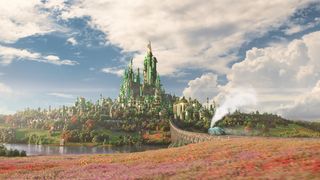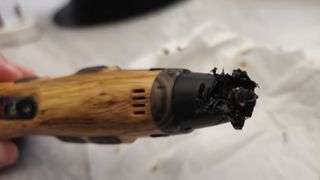Design a 3D Photoshop snowman in 6 steps
RuneScape artists John McCambridge and Mark Chambers walk you through creating a scarily seasonal design.
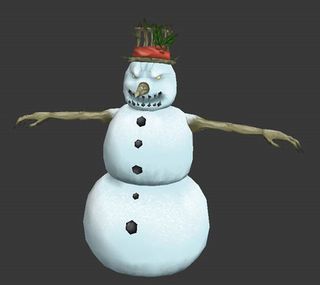
A concept artist needs to know a wider range of programs, such as Sketch-up and Zbrush, alongside Photoshop to create exciting concept art. A lot of innovative digital tools are coming out every year, meaning as an artist you need to adapt and embrace new ways of working.
In this tutorial I'll show the initial sketch stages to the final concept that the 3D artist will use as a base to model. I use mainly Photoshop in my process.
The main thing as a concept artist is to inspire and give enough information for the modeler to understand how, in this case, the monstrous snowman is constructed and an idea of textures and color. Painting the snowman in an action pose helps animators see the actions the snowman will have once in game.
Working in video games is a collaborative process. I find that the best results come from a 3D modeler interpreting a concept and using it as a base to create the model rather than slavishly following to the letter what is seen on the concept image. The end result is a combination of the two artists.
01. Initial sketches
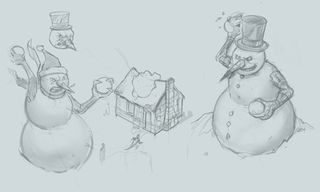
These are very rough ideas and work as a starting point in the creative process. Already at this stage there is enough information to discuss where to go next. I played around with hats but I wanted this fella is big and a traditional Santa hat or top hat made him look small.
02. Finalised Colour Concept
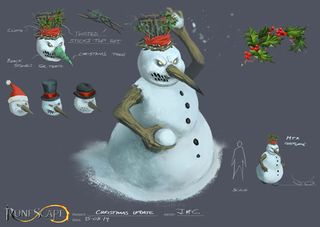
Once the overall design has been nailed I paint using Photoshop the giant snowman to give the modeler the scale, colour and texture of the character. It’s during this stage in the process I thought it would be cool to make the hat out of twisted tree branches. The sharp spiky shapes on the head along with the nose and teeth give this snowman an overall evil look about him.
03. Modeling
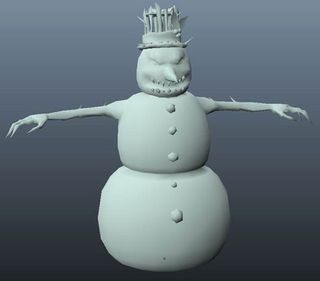
The First stage of creating a 3D asset for RuneScape is to model it. Here 3ds Max is used with the help of several in-house plugins, which translate geometry into a format our game engine can read. Strong silhouettes are a good thing to keep in mind when creating characters.
Get the Creative Bloq Newsletter
Daily design news, reviews, how-tos and more, as picked by the editors.
04. Poly Colours
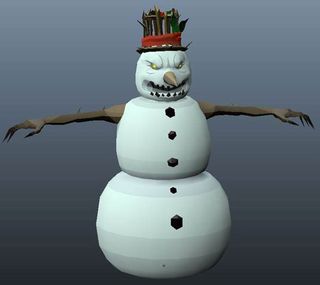
After the base mesh has been created, it's time to apply a basic colour set, which can be seen by users who chose to play RuneScape in the lowest graphical setting. Colour theory is important.
05. Unwrapping
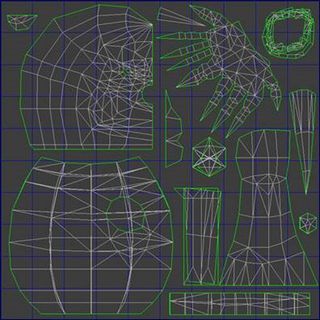
Once the low poly mesh is coloured, it's now time to unwrap and prepare the model for texturing. 3ds Max is used again, with the help of a few more time saving plugins. It's important to make your UVs as efficient and reusable as possible.
06. Texturing
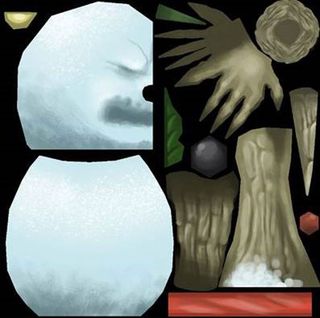
The final stage, which happens to be my favorite, is texturing. It's all about highlights, shading and Photoshop layers, and a good hand painted texture always brings a character to life.
Words: John McCambridge and Mark Chambers
John McCambridge and Mark Chambers are designers at Jagex as part of the RuneScape team.

Thank you for reading 5 articles this month* Join now for unlimited access
Enjoy your first month for just £1 / $1 / €1
*Read 5 free articles per month without a subscription

Join now for unlimited access
Try first month for just £1 / $1 / €1
The Creative Bloq team is made up of a group of design fans, and has changed and evolved since Creative Bloq began back in 2012. The current website team consists of eight full-time members of staff: Editor Georgia Coggan, Deputy Editor Rosie Hilder, Ecommerce Editor Beren Neale, Senior News Editor Daniel Piper, Editor, Digital Art and 3D Ian Dean, Tech Reviews Editor Erlingur Einarsson and Ecommerce Writer Beth Nicholls and Staff Writer Natalie Fear, as well as a roster of freelancers from around the world. The 3D World and ImagineFX magazine teams also pitch in, ensuring that content from 3D World and ImagineFX is represented on Creative Bloq.

